In late March, among thousands of applications from all over the world, NYB.AI - an AI model of a group of Vietnamese 9X people was among the group selected to introduce at GTC 2025 - the largest AI technology conference on the planet organized by NVIDIA in the US.
Where technology giants such as Google, Microsoft, Meta, OpenAI are present, young man Nguyen Hoang Truong Giang (26 years old, Hanoi) confidently stands on the main stage of NVIDIA.
In front of leading AI experts, Giang proudly introduced technology that could change the way people research pharmaceuticals.
From an idea in the lab to the technology appearing at GTC 2025, that journey is not only a story of startups but also the mark of a generation of Vietnamese people who dare to think, dare to do and are ready to reach out to the world.

Six years ago, in the country known as "Asia's Silicon Valley", Nguyen Hoang Truong Giang took his first steps towards his big goal.
At that time, he was just a young student with a backpack full of entrepreneurial aspirations.
From a chemistry major student to an AI startup at the age of 21, Giang has never chosen the easy path.
In grade 11, Giang won third prize in the national excellent student competition in Chemistry, a milestone that helped him receive direct admission to three prestigious universities: University of Pharmacy, Hanoi University of Science and Technology, and University of Natural Sciences.
But instead of being satisfied with the safe academic path, Giang soon had a dream of starting a business.
The young man cherishes a wish: One day, he will set foot in Singapore - the place with the most developed startup ecosystem in Asia.
After graduating, Giang studied at the University of Natural Sciences for a year and then decided to take a leave of absence to look for opportunities.
In the summer of 2018, the freshman entered the world of research for the first time when he interned at FPT's artificial intelligence lab. AI technology not only attracted Giang but also made him wonder: How can artificial intelligence create real value for society?
Also during this time, Giang participated in the Singapore - India Hackathon, a programming competition organized by the Singapore and Indian governments.
The young man’s project on an AI application that helps identify psychological problems in students has brought about an important turning point. This is no longer just a technological problem, but a way for AI to help people in a very practical way.
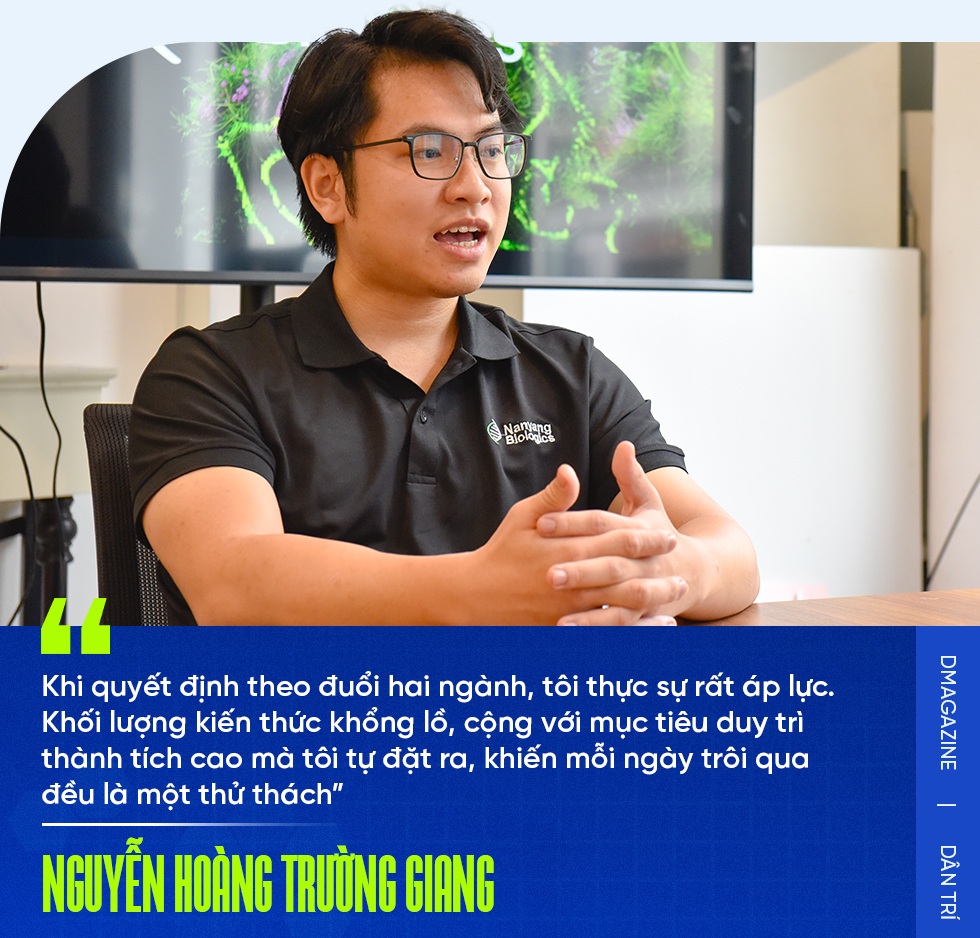
After that competition, everything became clearer. Giang wanted to build a company of his own - where AI could solve bigger, more meaningful problems. The dream of starting a business, from a vague idea, now had a clear shape.
That year, the 9X Vietnamese arrived in Singapore and officially became a student at Nanyang Technological University thanks to a scholarship from the country's government.
Knowing that he had a rare opportunity, Giang did not allow himself to stop in the safe zone. Right from his first year, he decided to challenge himself by studying Computer Science.
"When I decided to pursue two majors, I was really under a lot of pressure. The huge amount of knowledge, combined with the goal of maintaining high achievements that I set for myself, made every day a challenge," Giang recalled.
But it was that effort that brought about the first big opportunity: In his second year of university, Giang became one of two students recruited by IBM as a programmer.
Working at IBM not only helped Giang hone her skills, but also opened up a new perspective on the path to entrepreneurship.
Working at a self-driving car development company, Giang soon realized that even large technology corporations had difficulty deploying AI application software.
"If even big companies are struggling like this, small businesses will have many times more difficulty," Giang saw the problem that needed to be solved.
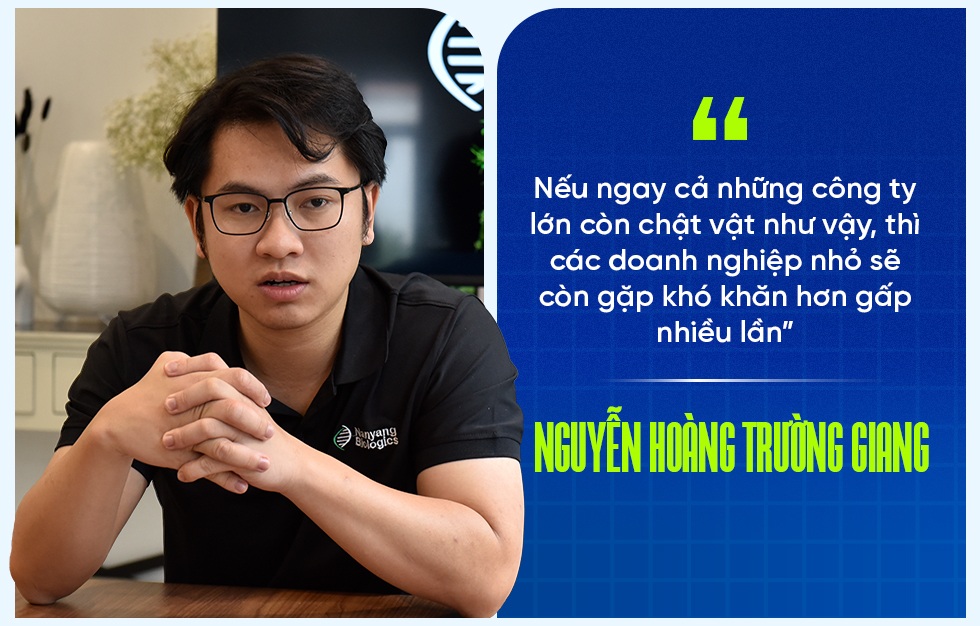
Seeing the "pain" of small businesses, he wanted to gather a talented team to create a product to help businesses build AI faster.
9X boldly presented his thoughts to the company director and unexpectedly received support.
Right from his early years at Nanyang Technological University, the Vietnamese guy was passionate about exploring AI and data science, constantly trying his hand at startup competitions, and reaping many impressive achievements.
Not stopping there, Giang also tirelessly sought to apply AI to niche fields. That passion led to the birth of Linh.AI - a startup specializing in data processing and AI quality assessment, cooperating with "big guys" such as ST Group, Platform and Hyundai.
To achieve such success, the 21-year-old young man had to make many sacrifices.
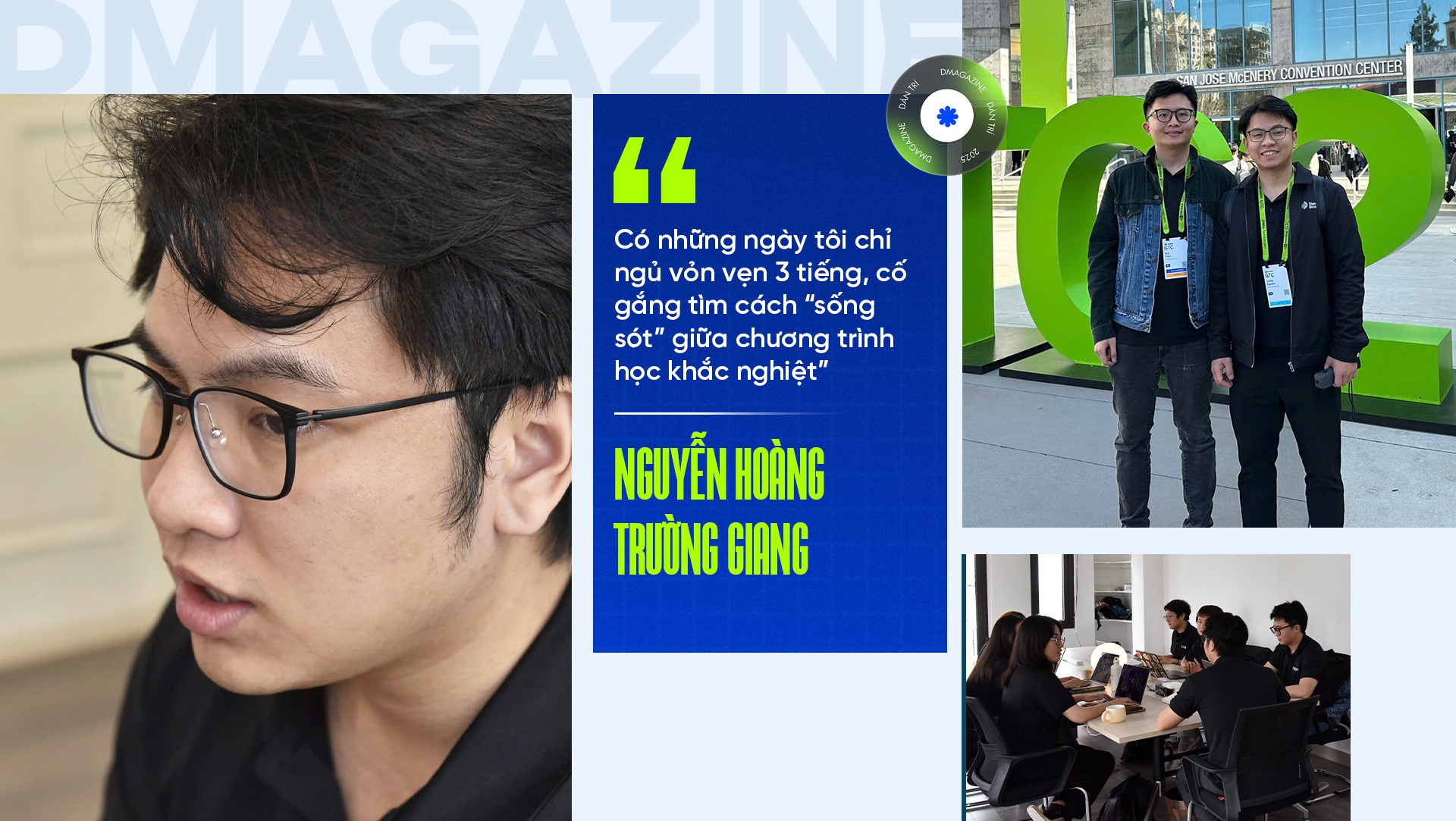
"There were days when I only slept for 3 hours, trying to find a way to "survive" the harsh curriculum," Giang recalled.
The young man's 24 hours a day revolve around only two things: going to class and running the company.
The pressure was even heavier when Giang studied at one of the most prestigious schools in the world, where the curriculum was rigorous and the grading mechanism was extremely strict.
"There were times when I was completely stuck in arranging my time. Just as I finished my homework, the company had a problem, leaving me unable to react in time," Giang recalls.

Among the countless barriers on the startup journey, for Giang, the biggest challenge is not technology or investment capital, but people.
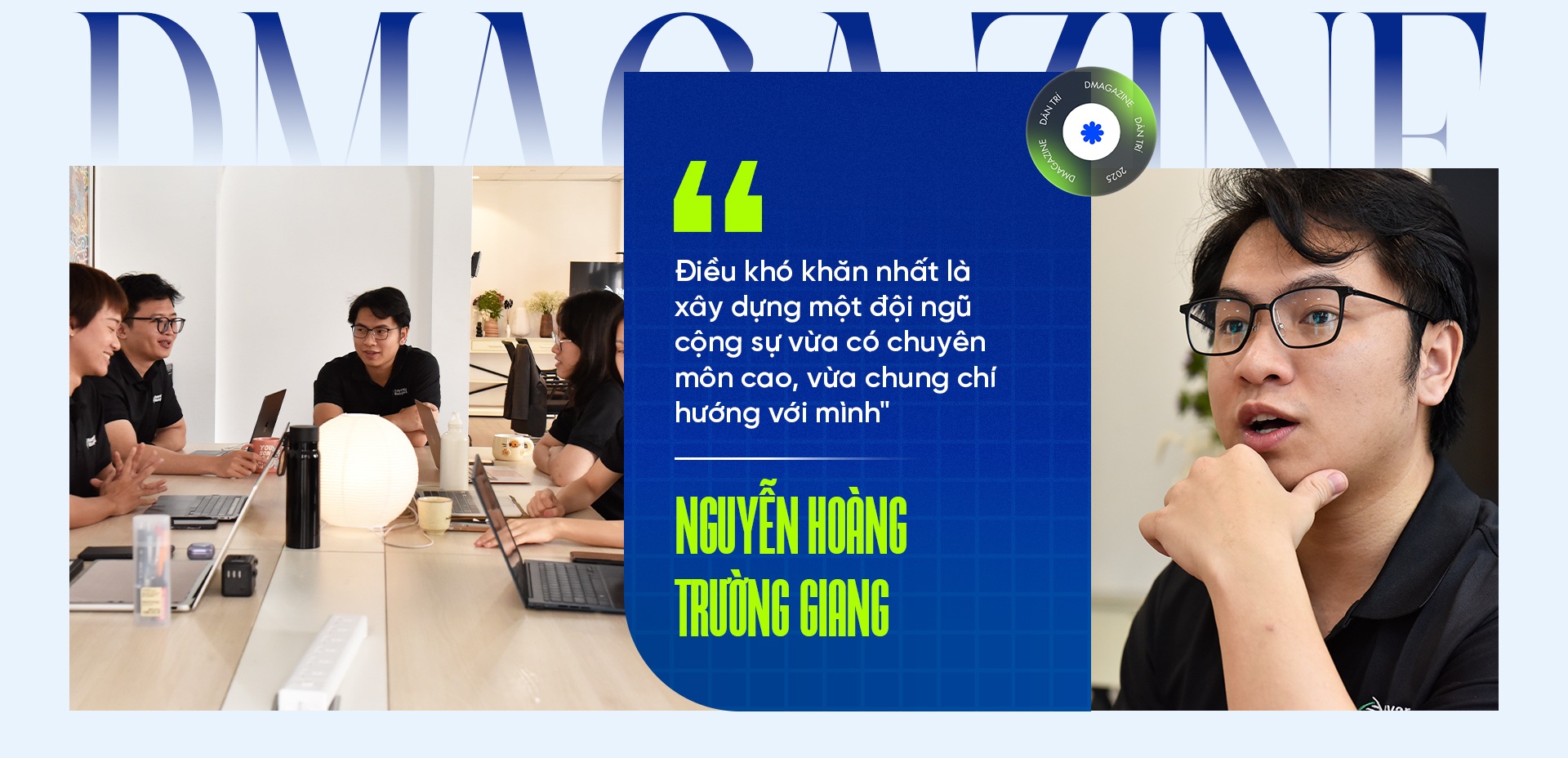
"The most difficult thing is building a team of associates who are both highly qualified and share the same goals as you," Giang shared.
And then, the further away he went, the more clearly Giang saw his homeland in his heart.
During his years studying abroad and working with many international friends, Giang realized that young Vietnamese people are not inferior. They are intelligent, eager to learn and always ready to innovate - an important quality in the AI era.
"But what they lack is not capacity, but an opportunity to solve big problems," Giang shared.
That's why the young student living far away from home believed he had to return.
"I want to work with young people from my country to create real value for society, so that AI is not just a distant technology, but also a tool to help Vietnamese people reach far," Giang said about his plan.

When deciding to return to Vietnam to start a business, Giang did not start from zero.
This journey was accumulated and prepared by this international student 5 years ago.
In 2021, Giang had the opportunity to work with professors on several research projects at Nanyang Biologics (NYB), a Singapore-based company that researches and develops drugs for the treatment of cancer, metabolic disorders, and neurodegeneration.
During a conversation with mentors, Giang heard them mention a type of oriental medicinal plant that has the potential to cure cancer.
However, to determine exactly which compounds are effective, researchers using traditional research methods must test thousands of different active ingredients, a costly and years-long process.
Giang soon realized a reality: the traditional drug research and development process consumes huge resources.
Despite advances in science, current prediction methods are still not accurate enough, forcing researchers to repeat experiments in the laboratory.
"They have to extract or synthesize each compound, test it directly on cells to evaluate its therapeutic effects. It can take 12 to 15 years for a new drug to be approved by the FDA, at a cost of up to billions of dollars," Giang explained.
Giang wondered: "Is there any way to shorten this process? If AI can analyze and screen potential compounds, drug research will save both time and money, opening up more treatment opportunities for patients."
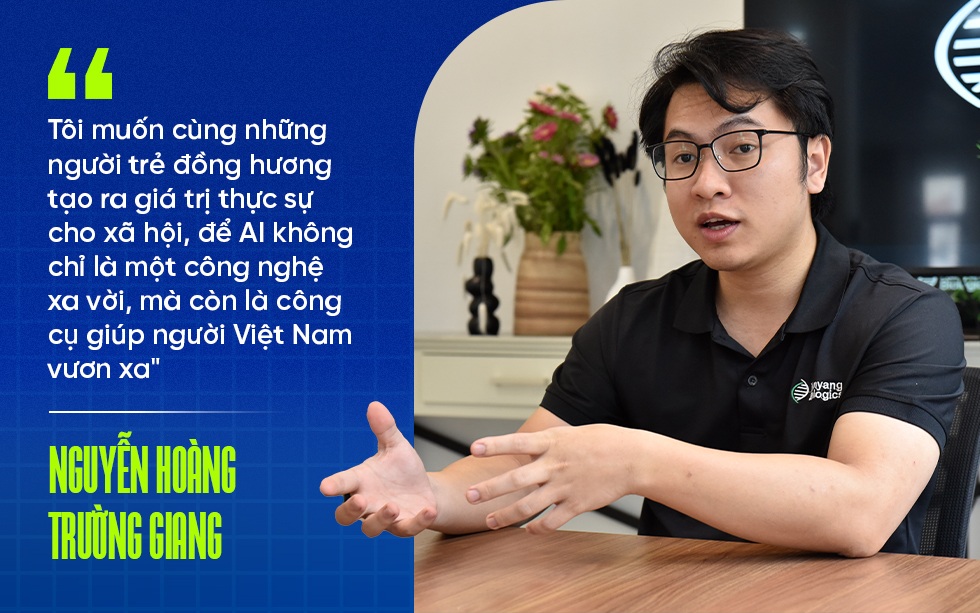
From that thought, he realized that in Asia and his homeland Vietnam, nature has bestowed precious medicinal resources but their potential has not been exploited to its full potential.
"If we can understand and exploit these compounds, disease treatment could open up new prospects," Giang said.
Carrying that aspiration, the young man returned to Vietnam with his colleagues and embarked on a journey to search for data on biological interactions.
The deeper they dug, the more the team realized a big problem: this data source was insufficient.
Developing an AI model capable of accurate predictions requires a huge amount of information from previous research, while most of the data is still collected manually - a process that takes years and consumes huge resources.
Not willing to be limited by these barriers, the group of young people determined to find a way to change. They started developing tools to automatically collect data, using artificial intelligence to optimize this process.
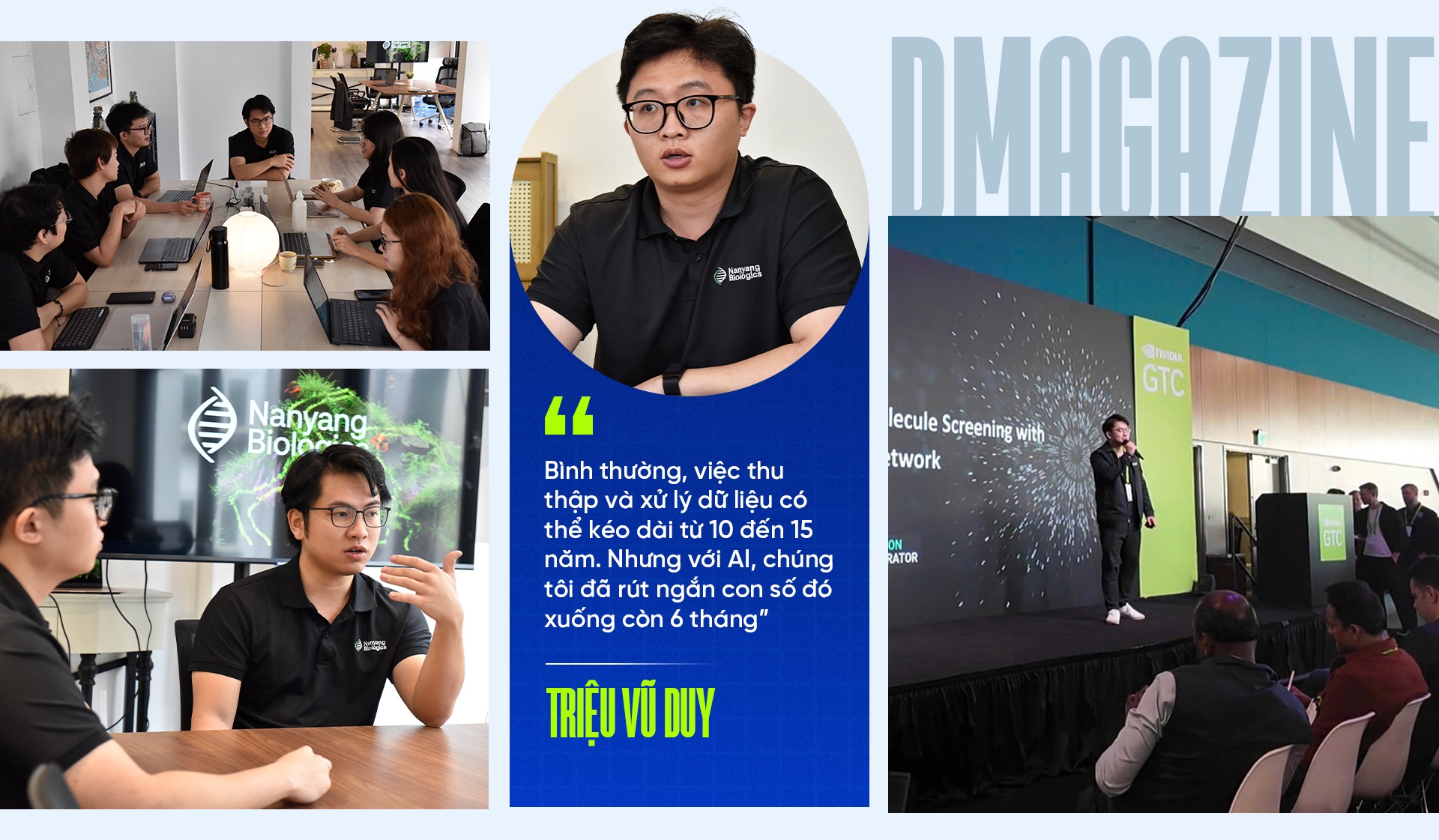
"Normally, data collection and processing can take 10 to 15 years. But with AI, we have shortened that number to 6 months," said Trieu Vu Duy, 26, a former student at Duke University (USA), a key member of the team.
After 4 years of dedicated research, Giang's team published the first scientific paper in 2024, and at the same time, Giang proposed the establishment of NYB.AI.
"In 2024, we proposed to establish NYB.AI, a subsidiary of NYB, focusing on applying AI to screening and discovering natural compounds with therapeutic potential," Giang recalled.
For Giang, NYB.AI is not simply a startup project, but a solution to a difficult problem in the pharmaceutical industry.
Unlike traditional research methods, the team's DTIGN model can scan and analyze billions of compounds, accurately predicting which compounds are likely to interact with pathogens, thereby immediately eliminating compounds that are not potential.
As a result, the process of finding therapeutic compounds is shortened by 3-4 years compared to the previous time frame of 10-15 years.
The DTIGN model has recently been officially patented in Singapore. It is currently awaiting approval for global protection.
At the same time, this model was published in IEEE magazine - one of the world's leading scientific and technical publishers.
Currently, this startup project has cooperated and connected with partners and customers from Japan, India, Singapore, France, Korea, China...
Giang said that the group's future product development orientation is to focus on developing in the US and European markets, where the world's leading pharmaceutical companies are concentrated.
According to Giang, these are markets that are always looking for solutions to shorten the time for screening and testing drugs, with the presence of large corporations such as: Pfizer, Johnson & Johnson, Merck & Co. (USA), Roche, Novartis (Switzerland), AstraZeneca (UK - Sweden), Sanofi (France)...
NYB.AI is not just about pharmaceuticals. The team realized that artificial intelligence could not only help find drugs to treat diseases, but also change the way people take care of their health every day.
Now, these young Vietnamese who have returned to contribute to their homeland are collaborating with a Japanese corporation to develop natural solutions to reduce stress and improve mental health, an issue that is increasingly of concern in modern society.
"Vietnam possesses many valuable natural active ingredients. For example, caffeine helps to stay awake but overuse can be harmful. Effectively exploiting these active ingredients will contribute to bringing Vietnam to the international level in pharmaceuticals and biotechnology," Giang affirmed.
Source: https://dantri.com.vn/khoa-hoc/21-tuoi-khoi-nghiep-o-singapore-9x-ve-nuoc-tim-dong-doi-xuat-ngoai-ai-viet-20250331112544833.htm





![[Photo] Performance of the Air Force Squadron at the 50th Anniversary of the Liberation of the South and National Reunification Day](https://vphoto.vietnam.vn/thumb/1200x675/vietnam/resource/IMAGE/2025/4/30/cb781ed625fc4774bb82982d31bead1e)
![[Photo] Chinese, Lao, and Cambodian troops participate in the parade to celebrate the 50th anniversary of the Liberation of the South and National Reunification Day](https://vphoto.vietnam.vn/thumb/1200x675/vietnam/resource/IMAGE/2025/4/30/30d2204b414549cfb5dc784544a72dee)
![[Photo] Cultural, sports and media bloc at the 50th Anniversary of Southern Liberation and National Reunification Day](https://vphoto.vietnam.vn/thumb/1200x675/vietnam/resource/IMAGE/2025/4/30/8a22f876e8d24890be2ae3d88c9b201c)



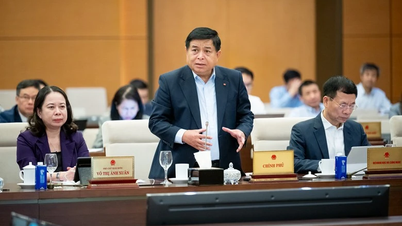

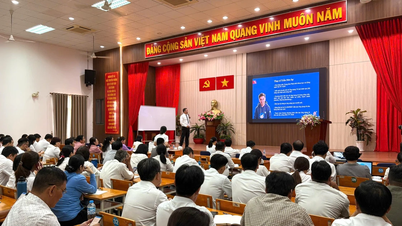









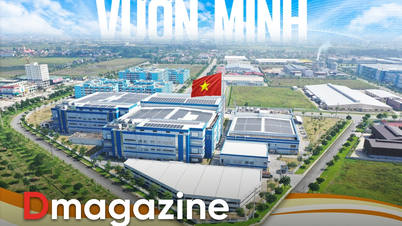
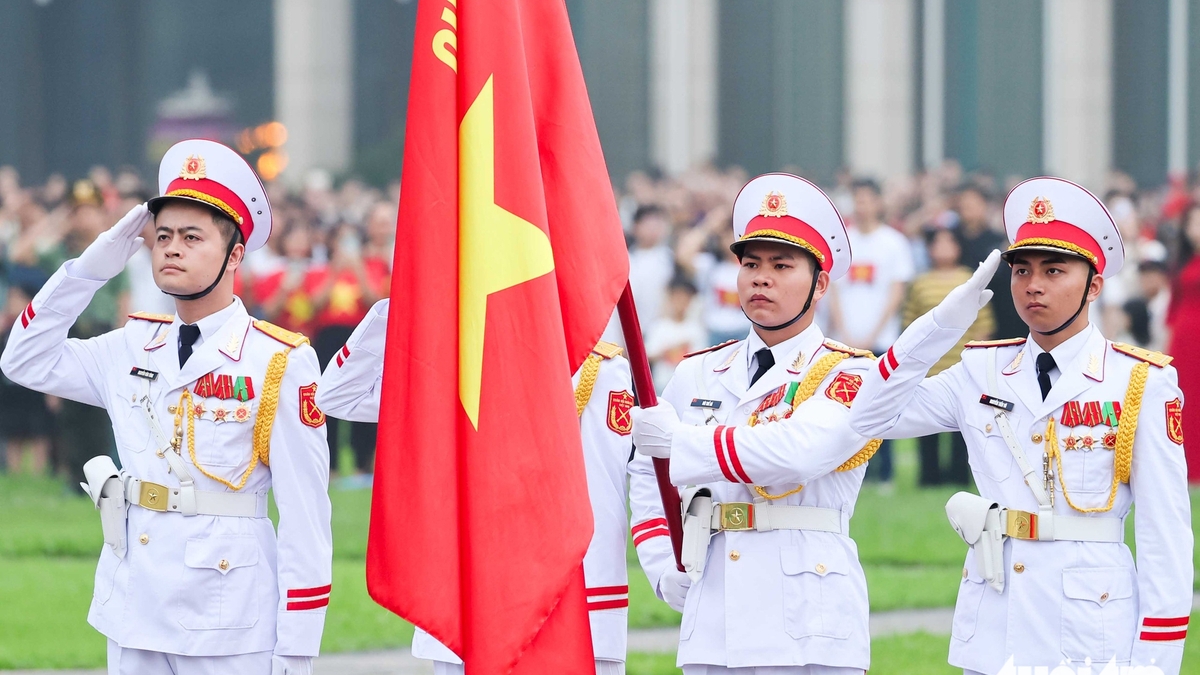













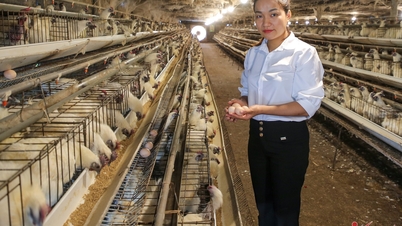


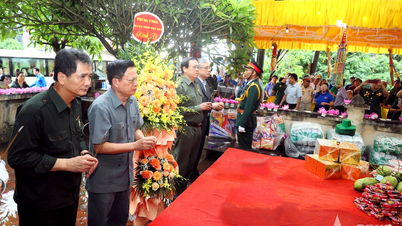
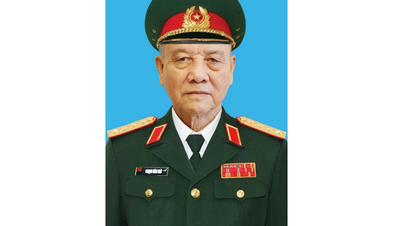






















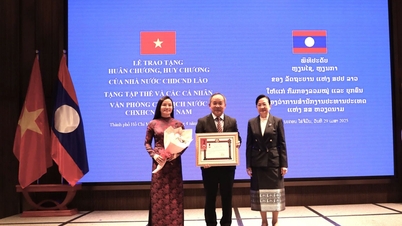



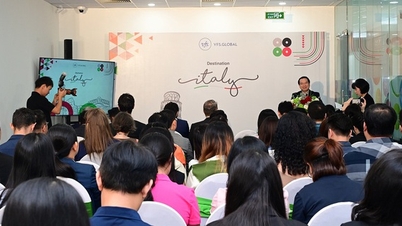




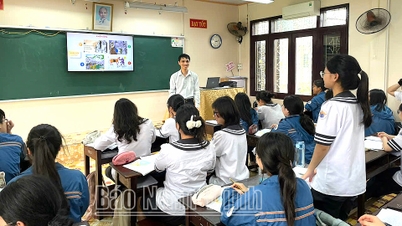

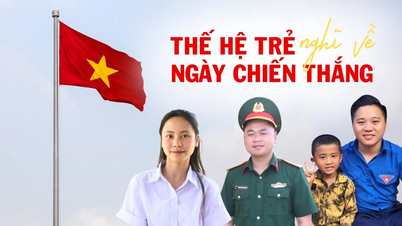



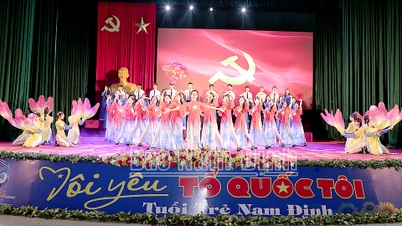












Comment (0)